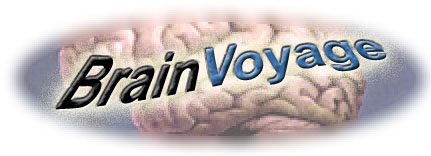


FEATURED BOOKS:
Reality Begins with Consciousness |
Cry the Beloved Mind |
Déjà Vu Trilogy
RBC-Key Features | RBC-Glimpses and Glossary | Collector's Items |
Forensic Expert |
Quakes |
Innovative Psychopharmacotherapy |
Déjà Vu Revisited |
Déjà Vu: Second Look |
Déjà Vu Glossary & Library
For more on the following click here:
Déjà Vu |
Forensics |
Stress |
Seizures & Spells |
Anxiety & Depression |
Dieting and Nutrition
More on Cry the Beloved Mind |
More on Déjà Vu |
More on Attorney Experts
RELATED SITES: www.pni.org | www.vernonneppe.org | www.tddvp.com | www.ecao.us | www.healthyharmony.com
Sciction: Science Through Literature
Cry the Beloved Mind represents a series of voyages in the pharmacology of psychiatry and neurology, reflecting a single message: there is help for the anguished patient. People can be helped, provided we are aware of the exact biochemical or electrical abnormalities involved and we have the appropriate interventions to alleviate the problems. Each of the twelve chapters is a unique voyage directed toward the same destination of exploration and hope.
This book educates and stimulates. Didactic principles about understanding symptoms and restoring health are interwoven with patient portrayals to provide concrete examples of diagnostic and therapeutic dilemmas. These techniques allow a focus on medication options, which sometimes reflect important breakthroughs in pharmacological knowledge. I hope the reader will share with me some wonderful voyages of discovery. These include the first successful treatment of profound tardive dyskinesia, the awakening of the catatonic patient, the dousing of brain fires in both non-epileptic psychotic and aggressive patients, and the normalization of patients who have lost efficacy on antidepressants. However, the complex solutions in this book portray more than a medical mystery. Respect and hope are the key themes of Cry the Beloved Mind.
But the pharmacology of hope would be incomplete without the crucial spice of this book: deliberate diversions that allow discussions within each chapter to explore social issues such as normality, cause and effect, searches for meaning, gun control, informed consent, labeling of patients, generic substitution, alternative herbal medicine, jet lag, regulation of medications, drug interactions, historical perspectives in psychiatry, shock treatment, and techniques such as measurement of brain waves at home.
Cry the Beloved Mind targets a wide and diverse readership. Those seeking help for themselves or a family member should benefit. Health care professionals and students of psychology, pharmacology and medicine may profit greatly. Literary scholars may be interested in the new style: sciction-science through fiction. Even the inquisitive senior high school student may find the concepts embodied are applicable during the iconoclasm of anomic adolescence. But most of all, I have written this book for the curious layperson: You can take pleasure in an ongoing medical and psychological detective mystery spiced with the controversial and yet primarily aimed at education and showing caring for others in need.
This book reflects my optimism that most problems linked with brain abnormalities and behavioral difficulties can be treated. Detailed clinical evaluation over many different sessions ensures that each individual's numerous unique characteristics have been carefully evaluated. Brief medical exams may contribute to the truth, but turning a life around often requires more subtle appreciation of the complexities. It is in this sense that the sciction of this book reflects an approach that I have learned, and am still learning: My many patients have taught me to look, listen and apply whatever knowledge and skills I may have to help their recovery.
The ideas in Cry the Beloved Mind are intended to flow as the text within sections and chapters are connected closely with the themes of the preceding ones. Yet, each chapter is a distinct entity which can be read, and hopefully understood and appreciated, on its own. Extreme facets are dramatized, yet the lessons that emerge can be widely applied. A book such as this becomes a twelve act play with different scenes in each chapter. The play calls for an intensity that makes each patient atypical; but such unique attributes exist within everyone.
The voyages described in this book reflect unusual patients and therefore require unusual solutions. If these clients can be helped, how much more so can the average patient improve? The voyage of hope is an important one, but we should never lose a sense of perspective. Most people with neurological and psychiatric disorders reflect common problems with ordinary solutions which respond well to appropriate medications. Most patients do not need these innovative approaches.
No form of treatment is a panacea. While this book is intended to communicate how, by detailed evaluation, even the most difficult of patients may be helped by medication, it is not a comprehensive didactic exposition on pharmacology or on psychiatric disease. The appropriate medical specialist, not this book, should determine how, why and when to use a specific drug. Exhaustive detail can be found in standard texts.
All books have lofty hopes. So, too, does this one. My primary hope is to help many in need, enhancing knowledge of medical and neuropsychiatric conditions, and making way for further books in the Cry the Beloved series. Toward this end, I also offer for scrutiny the new literary direction of sciction.
-Vernon Neppe
Style of Sciction
Conversagraph
Why Cry the Beloved Mind and all of Sciction is Classified as Non-fiction.
From other sites: So Brain Medications Help (athealth.com Guest Editorial)
Home | Cry the Beloved Mind | Reality Begins with Consciousness | Déjà Vu | Order Books | PNI.org | Contact BrainVoyage




|




Read our Disclaimer, Contact Information, and Copyright Notice
Contact Webmaster
Contact Webmaster
Copyright ©1992-2021 Brainvoyage.com

